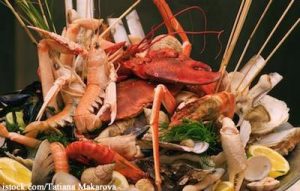Korean shellfish is not safe to eat and Korea has been removed from the U.S. list of approved shellfish shippers after officials from the U.S. Food and Drug Administration (FDA) discovered unsanitary conditions that exposed molluscan growing areas to human fecal matter, norovirus and pollution, the agency announced yesterday.
 Previously, the FDA had issued a recall of Korean shellfish imported to the U.S. after May 1, 2012. But now the FDA says no shellfish from Korea is safe to eat. Whether they are fresh, frozen or canned; mussels, scallops and oysters from Korea may have been exposed to human fecal matter, may also be contaminated with norovirus and are not safe to eat at this time, according to the advisory.
Previously, the FDA had issued a recall of Korean shellfish imported to the U.S. after May 1, 2012. But now the FDA says no shellfish from Korea is safe to eat. Whether they are fresh, frozen or canned; mussels, scallops and oysters from Korea may have been exposed to human fecal matter, may also be contaminated with norovirus and are not safe to eat at this time, according to the advisory.
Currently, the Korean Shellfish Sanitation Program (KSSP) does not meet sanitation controls specified by the U.S. and all Korean shellfish shippers have been removed from the Interstate Certified Shellfish Shippers List, a list of those who are certified to ship shellfish to this country.
The FDA urges consumers to avoid Korean shellfish at this time. After the recall was issued last month, some food companies began removing the products from circulation. But, according to the FDA, “many others have yet to take action.” Consumers can determine the country of origin of shellfish they have purchased by contacting the store or by reading the labels on the packaging.
Norovirus is a common cause of gastroenteritis. Symptoms generally develop 12-48 hours after exposure and include abdominal cramping, nausea, vomiting and diarrhea. Sometimes there are also flu-like symptoms including low-grade fever, headache, chills, muscle aches and malaise. In 2011, some U.S. cases of norovirus were linked to Korean oysters. So far this year, no U.S. illnesses have been attributed to the consumption of Korean shellfish.




